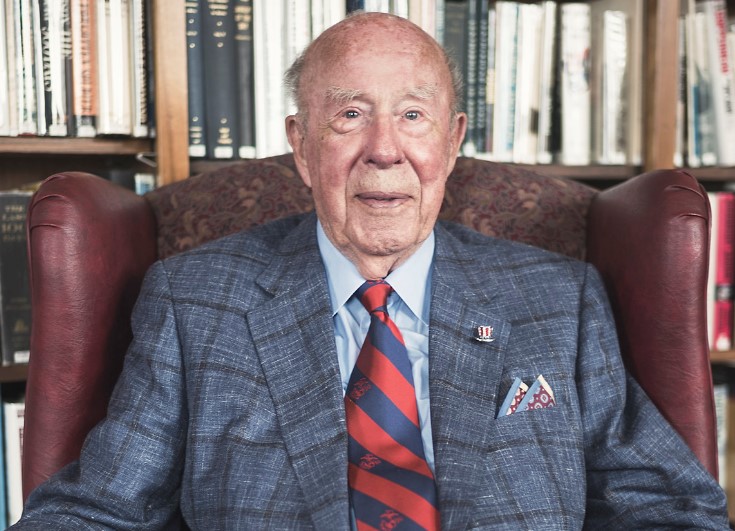Vale George Shultz

The passing of former US Secretary of State George Shultz on 7 February, at the grand age of 100, was a sad moment for those of us who shared his passion for a world free of the horror of nuclear weapons.
A Republican who always put principle before partisanship, a military veteran and Cold War realist who never lost his idealistic hopes for a better world, a hugely competent statesman in multiple roles over many years, and a thoroughly decent human being, Shultz was the crucial voice in reinforcing President Ronald Reagan’s instinct—so movingly articulated in his joint statement with Mikhail Gorbachev at Reykjavik 35 years ago—that ‘a nuclear war cannot be won and must never be fought’.
It was Shultz who played the critical role in negotiating the Intermediate-Range Nuclear Forces Treaty in 1987, and in generating the momentum for the major drawdown of US and Soviet stockpiles that followed. And it was he who, along with his Democrat colleagues Bill Perry and Sam Nunn—and a slightly less enthusiastic Henry Kissinger—penned the famous series of Wall Street Journal opinion articles from 2007 onwards, arguing that ‘reliance on nuclear weapons for deterrence is becoming increasingly hazardous and decreasingly effective’ and urging that the nuclear-armed states get serious about moving towards their elimination. It was a cause for which he campaigned, with slowly fading energy, but undimmed commitment, throughout the last decades of his life.
On a personal note, I came to know Shultz well during my years as Australian foreign minister and later president of the International Crisis Group, and liked and admired him immensely. His time as an officer with the US Marine Corps in the Pacific War gave him an abiding understanding of the region, and interest in and affection for Australia, and he was a close friend of Prime Minister Bob Hawke with whom he had first knocked about years before as a fellow delegate to International Labour Organization conferences in Geneva. I was a regular invitee to the annual off-the-record roundtables meetings he co-convened in the 1990s, from the Hoover Institute at Stanford, with former Democrat Senator Bill Bradley, bringing together a small group of young ministers from around the Asia–Pacific. On one particularly memorable evening, he and his wonderful wife Charlotte hosted a spectacular kangaroo, koala and vegemite-themed dinner at their home on the Stanford campus in honour of his ‘Aussie mate’.
George Shultz believed intensely, here as elsewhere, in ‘diplomatic gardening’—the immense importance of building personal relationships if global and regional problems were ever to be effectively cooperatively addressed. And he never lost sight of the issues that really mattered. There were plenty of political issues about which we disagreed, but never about the need to rid the world once and for all of the most indiscriminately inhumane weapons of war ever devised.
A giant’s voice has been stilled, and the world is poorer for his passing.